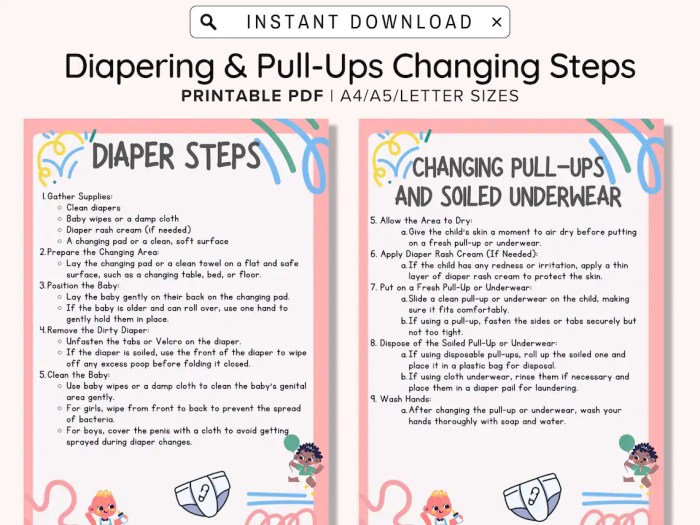6 common career mistakes that are holding you back. Are you feeling stuck in a rut, despite your hard work? Maybe you’re not seeing the career progression you deserve. This post dives into six common pitfalls that often sabotage career advancement, providing actionable strategies to overcome them and catapult your career forward. We’ll explore everything from poor planning to a lack of professionalism, equipping you with the knowledge and tools to navigate the complexities of the modern job market.
From the initial steps of career planning to the ongoing need for professional development, we’ll examine how these seemingly minor errors can accumulate and significantly impact your overall success. Understanding these mistakes and implementing the corrective actions will not only improve your current career but also set you up for long-term growth and satisfaction.
Introduction to Career Mistakes
Are you feeling stuck in your career? Do you find yourself consistently falling short of your goals, despite putting in the effort? You might be unknowingly making common career mistakes that are hindering your progression. Understanding these pitfalls is the first step to overcoming them and charting a more successful career path. Identifying and addressing these errors can significantly boost your performance and pave the way for professional growth.Career mistakes are errors in judgment, actions, or choices that negatively impact career progression.
These mistakes often stem from a lack of awareness, poor planning, or insufficient skill development. They can manifest in various forms, from poor communication to neglecting professional development opportunities. The consequences of these mistakes can range from missed promotions to strained relationships with colleagues and superiors. Understanding the root causes of these errors allows for targeted improvement and a more effective approach to career advancement.
Common Career Mistakes
Common career mistakes are detrimental to career progression, often stemming from a lack of self-awareness, inadequate planning, or insufficient skill development. Identifying these mistakes and understanding their impact are crucial for career advancement.
| Mistake | Brief Description | Example | Potential Impact |
|---|---|---|---|
| Ignoring Feedback | Failing to acknowledge and learn from constructive criticism from superiors, colleagues, or mentors. | A junior employee consistently ignores feedback on their project presentations, leading to repeated issues in communication. | Stagnation in skill development, potential for missed promotions, damaged professional relationships. |
| Lack of Networking | Neglecting to build and maintain professional relationships with peers, mentors, and industry leaders. | An employee rarely attends industry events or connects with colleagues outside of their immediate team, limiting exposure to new opportunities. | Reduced visibility within the organization, missed opportunities for mentorship, difficulty in career advancement. |
| Poor Time Management | Inability to effectively prioritize tasks, allocate time efficiently, and meet deadlines. | An employee consistently prioritizes less critical tasks over urgent projects, resulting in missed deadlines and project delays. | Decreased productivity, negative impact on project outcomes, potential for job dissatisfaction. |
| Insufficient Skill Development | Failing to acquire or enhance necessary skills for career advancement and industry demands. | A marketing professional doesn’t update their skills with new marketing tools and strategies, leading to a lack of competitive edge. | Inability to adapt to evolving industry standards, reduced market value, and difficulty securing desired positions. |
| Fear of Failure | Allowing fear of making mistakes to inhibit career advancement and taking calculated risks. | A creative professional avoids presenting innovative ideas due to the fear of rejection, limiting the chance to develop creative solutions. | Missed opportunities for growth, inability to showcase potential, stagnation in career progression. |
| Poor Communication | Difficulty conveying ideas effectively and clearly to colleagues, clients, or superiors. | An employee struggles to explain complex technical concepts in a simple and understandable way, hindering collaboration and clarity. | Misunderstandings, project setbacks, negative impact on team performance, and damaged professional relationships. |
Lack of Planning and Goal Setting
Career advancement is rarely a matter of luck. It’s a deliberate process that requires careful planning and the establishment of realistic goals. Many individuals find themselves stuck in a rut, feeling unfulfilled and unable to progress, precisely because they haven’t taken the time to map out their career path and define specific objectives. This often results in a reactive approach to work, leading to missed opportunities and a general sense of stagnation.
Common Traits of Individuals Lacking Career Planning
Individuals lacking a structured career plan often exhibit similar characteristics. They may be overwhelmed by the sheer number of options available, leading to indecision and a reluctance to commit to a specific path. Another common trait is a lack of self-awareness regarding their strengths, weaknesses, and career aspirations. Without a clear understanding of their own capabilities and interests, it becomes challenging to identify suitable career options and set meaningful goals.
Six common career mistakes can really derail your progress, like neglecting networking or lacking a clear career plan. But did you know even Steve Jobs, a tech icon, reportedly limited his kids’ technology use? It makes you think, right? Perhaps focusing on real-world skills and experiences, like those discussed in even steve jobs didnt let his kids use ipads why you should limit technology use for your kids , could be just as crucial for career success as avoiding those typical pitfalls.
Ultimately, a balanced approach, both digitally and in the real world, might be the key to unlocking your career potential.
How Poor Goal Setting Hinders Career Advancement
Without well-defined goals, progress feels aimless and unfocused. This can lead to a sense of being adrift, making it difficult to prioritize tasks and allocate time effectively. Furthermore, a lack of specific goals makes it hard to measure progress, leading to a lack of motivation and a diminished sense of accomplishment. Without concrete objectives, it’s challenging to identify opportunities for growth and development, hindering career advancement.
Importance of Establishing Clear Career Goals
Establishing clear career goals is crucial for achieving professional success. These goals provide a roadmap, guiding decisions and actions towards desired outcomes. They act as a motivating force, pushing individuals to learn new skills, take on new challenges, and ultimately advance their careers. Clear goals also enable individuals to measure their progress, celebrate achievements, and adjust their strategies as needed.
Steps to Create a Personalized Career Development Plan
Creating a personalized career development plan is a multifaceted process. It begins with self-assessment, identifying strengths, weaknesses, interests, and values. Next, research relevant career paths and industries. Once potential options are identified, set specific, measurable, achievable, relevant, and time-bound (SMART) goals. Develop an action plan outlining the steps needed to achieve each goal, including necessary skills and training.
Finally, regularly review and adjust the plan as circumstances change and new opportunities arise. This dynamic approach allows for adaptability and continued progress.
Importance of Setting Career Goals – A Table
| Goal Setting | Benefits | Pitfalls | Strategies |
|---|---|---|---|
| Defining specific, measurable career objectives | Increased focus, clarity, and motivation | Lack of direction, wasted effort, feeling lost | Use SMART goal-setting techniques; break down large goals into smaller, actionable steps |
| Establishing clear timelines for achieving goals | Improved time management, accountability, and productivity | Procrastination, missed deadlines, demotivation | Create realistic timelines; prioritize tasks; utilize time management tools |
| Regularly reviewing and adjusting goals | Adaptability to changing circumstances, continuous learning, and increased opportunities | Inertia, resistance to change, feeling stuck | Schedule regular reviews; seek feedback from mentors or supervisors; embrace new opportunities |
| Tracking progress toward goals | Increased awareness of achievements, motivation, and sense of accomplishment | Demotivation if not progressing, overlooking small victories | Use progress trackers; celebrate milestones; acknowledge efforts |
Ignoring Feedback and Self-Reflection
Ignoring feedback and neglecting self-reflection are significant obstacles to career advancement. These practices often lead to missed opportunities for growth and hinder the development of crucial skills. Understanding the value of constructive criticism and the process of self-assessment is essential for career success. A willingness to embrace feedback and introspective analysis allows individuals to identify blind spots, refine their approach, and ultimately achieve their career aspirations.Effective career management necessitates a continuous cycle of evaluation and adaptation.
This involves actively seeking out feedback from mentors, colleagues, and supervisors, and honestly examining one’s own performance and strengths. By integrating these insights, professionals can fine-tune their skills and identify areas requiring improvement. This ongoing self-improvement process is vital for long-term career satisfaction and success.
Seeking Constructive Feedback
Constructive feedback is invaluable for personal and professional growth. It provides a framework for understanding areas where one excels and areas needing improvement. A proactive approach to seeking feedback demonstrates a commitment to self-improvement and a willingness to learn from others’ perspectives. This proactive approach often yields insights that might otherwise remain hidden.
Incorporating Feedback Effectively
To effectively incorporate feedback, individuals should actively listen and avoid getting defensive. They should strive to understand the perspective of the feedback provider. This process often involves clarifying any ambiguities or misunderstandings to ensure that the feedback is accurately interpreted. It is equally important to separate constructive criticism from personal attacks, focusing on the specific behaviors or actions being discussed.
A thoughtful and organized approach to analyzing feedback allows for its effective application in future endeavors. Examples include journaling about the feedback, identifying specific actions to change, and practicing new skills. Note-taking and implementing specific changes are critical to ensure the feedback is not just heard, but acted upon.
The Importance of Self-Assessment and Introspection
Self-assessment and introspection are fundamental to personal and professional development. Regular self-reflection allows individuals to gain a deeper understanding of their strengths, weaknesses, values, and motivations. This self-awareness is crucial for making informed decisions about career paths and achieving personal goals. Self-assessment helps individuals identify their preferred work styles, ideal environments, and the types of roles that align with their aspirations.
Using Self-Reflection to Improve Career Choices
Self-reflection is a powerful tool for refining career choices. By honestly examining one’s values, interests, and skills, individuals can identify career paths that align with their long-term aspirations. This process involves asking pertinent questions about career preferences and considering potential future roles. This self-analysis leads to career decisions that are more likely to result in satisfaction and fulfillment. This process also enables individuals to identify any gaps between their current skills and desired career goals.
Six common career mistakes often trip us up, and one surprisingly impactful one is a lack of humility. Sometimes, we get so caught up in our own perceived brilliance that we miss crucial opportunities for growth and collaboration. Developing humility in the workplace, as discussed in this insightful article on humility in the workplace , can actually unlock new levels of success.
This, in turn, helps avoid other pitfalls like poor communication, missed deadlines, and a general lack of teamwork that often stem from a lack of self-awareness. Ultimately, recognizing our own limitations and actively seeking feedback from colleagues is key to avoiding these common career mistakes.
Benefits of Self-Reflection
| Area of Focus | Self-Reflection Questions | Action Items | Potential Outcomes |
|---|---|---|---|
| Strengths | What tasks do I enjoy? What am I good at? What are my natural talents? | Identify specific strengths and document them. Develop a plan to leverage these strengths in future endeavors. | Improved self-confidence, increased productivity, and a clearer understanding of career paths that align with personal strengths. |
| Weaknesses | What tasks do I find challenging? Where do I need to improve? What are my areas of opportunity? | Identify specific areas needing improvement. Create a plan to develop new skills and address weaknesses. Seek out mentorship or training programs. | Enhanced skills, reduced stress related to challenging tasks, and a greater sense of competence in various roles. |
| Values | What is important to me in a job? What kind of work environment do I thrive in? What are my core values? | Clarify personal values and identify roles that align with these values. Research organizations that share similar values. | Increased job satisfaction, reduced burnout, and a more fulfilling career path. |
| Career Goals | What are my long-term career aspirations? What steps do I need to take to achieve them? What are my short-term goals? | Set realistic goals, create a roadmap for achieving them, and establish milestones to monitor progress. | Enhanced focus, increased motivation, and a clear direction for career advancement. |
Insufficient Networking and Relationship Building
Networking is crucial for career advancement. It’s not just about collecting business cards; it’s about building genuine connections that can open doors, provide mentorship, and offer invaluable support throughout your professional journey. Without a robust network, you might miss out on opportunities, stagnate in your career, and find yourself struggling to navigate the complexities of the professional world.
A strong professional network can provide access to information, advice, and potential collaborations that can propel your career forward.Effective networking goes beyond superficial interactions. It’s about cultivating meaningful relationships that are built on mutual respect and shared goals. This approach fosters trust and creates opportunities for growth and collaboration. By actively engaging with others in your field, you can gain valuable insights, learn from their experiences, and broaden your perspectives.
These connections can be invaluable sources of support and guidance, leading to greater success in your professional endeavors.
Importance of Networking for Career Advancement
Networking significantly enhances career advancement. A strong network can provide access to valuable information, mentorship, and potential collaborations, ultimately leading to career growth and opportunities. By connecting with professionals in your field, you can gain insights into industry trends, learn from their experiences, and broaden your perspectives. This knowledge and experience can be instrumental in navigating career challenges and making informed decisions.
Moreover, a network can provide support, guidance, and recommendations that can open doors to new opportunities.
Networking Strategies
Effective networking involves various strategies. These strategies can include attending industry events, joining professional organizations, leveraging online platforms, and actively participating in professional communities. Each approach has its own strengths and weaknesses, and the most effective approach often depends on individual goals and circumstances. Consider a combination of strategies for a comprehensive approach to networking.
- Industry Events: Attending conferences, workshops, and networking events allows you to connect with professionals in your field, learn about industry trends, and build relationships. Networking events provide opportunities to meet people you might not otherwise encounter, fostering valuable connections and potential collaborations. They allow for direct interaction and the opportunity to build rapport with potential collaborators.
- Professional Organizations: Joining relevant professional organizations can provide access to a network of professionals with shared interests and goals. Membership often includes opportunities for networking, workshops, and knowledge-sharing, creating a platform for professional growth and development.
- Online Platforms: Utilizing online platforms such as LinkedIn and industry-specific forums allows you to connect with professionals globally. Online platforms offer a cost-effective and efficient way to build and maintain connections with professionals in your field. They allow for the cultivation of virtual relationships that can translate into real-world opportunities.
- Mentorship Programs: Mentorship programs provide opportunities to learn from experienced professionals. These programs offer guidance, support, and advice, fostering professional development and growth. Mentorship can significantly accelerate your career progression.
Building Meaningful Relationships
Building meaningful relationships in a professional context requires genuine interest in others, active listening, and a willingness to share knowledge and experiences. It’s about demonstrating genuine interest in understanding the other person’s background, skills, and aspirations. Building genuine connections requires time, effort, and a genuine desire to connect with others.
- Active Listening: Pay attention to what others are saying, ask clarifying questions, and show genuine interest in their perspectives. Active listening demonstrates respect and fosters deeper connections.
- Mutual Benefit: Focus on building relationships where both parties can benefit. Offer value and support, and be open to receiving support in return. Meaningful relationships are built on reciprocity.
- Follow-Up: After initial interactions, follow up with connections through email or social media. Demonstrate continued interest in the relationship and maintain consistent communication.
Benefits of a Strong Professional Network
A strong professional network offers numerous benefits, including access to new opportunities, mentorship, and support. A robust network can be a source of invaluable insights, advice, and recommendations that can propel your career forward. It can also provide support during challenging times and open doors to new experiences and opportunities.
- Access to Opportunities: A strong network can provide access to new job opportunities, projects, and collaborations.
- Mentorship and Guidance: Experienced professionals in your network can provide valuable mentorship and guidance, helping you navigate your career path.
- Support and Collaboration: Your network can offer support and collaboration, facilitating the completion of projects and the achievement of shared goals.
Steps to Develop a Robust Professional Network
Developing a robust professional network requires consistent effort and a proactive approach. It involves identifying your target audience, actively engaging in networking events, and maintaining consistent communication with your connections. It requires a willingness to invest time and energy in nurturing these relationships.
- Identify Your Target Audience: Determine the specific professionals and organizations you want to connect with, based on your career goals and interests.
- Attend Networking Events: Actively participate in industry events and conferences to meet new people and build connections.
- Maintain Communication: Follow up with connections through email, social media, or phone calls to maintain and strengthen relationships.
Networking Approach Comparison
| Approach | Benefits | Challenges | Success Metrics |
|---|---|---|---|
| Industry Events | Direct interaction, trend insights, potential collaborations | Time commitment, competition for attention | Number of new contacts, follow-up interactions, referrals |
| Professional Organizations | Structured network, shared interests, resources | Membership fees, time commitment | Number of members, participation in events, knowledge gained |
| Online Platforms | Global reach, cost-effective, convenient | Maintaining engagement, verifying authenticity | Number of connections, quality of interactions, opportunities identified |
| Mentorship Programs | Guided learning, career advice, support | Finding a suitable mentor, managing expectations | Quality of mentorship, career progress, skill development |
Failure to Adapt to Change and Industry Trends

The job market is a dynamic environment, constantly evolving with new technologies, shifting priorities, and evolving societal needs. Failure to adapt to these changes can quickly leave individuals and teams behind, hindering career progression and potentially leading to job displacement. Recognizing and proactively addressing this dynamic nature of the professional landscape is crucial for long-term career success.The relentless pace of technological advancements and evolving industry standards necessitates a continuous learning approach.
Staying stagnant in your knowledge and skillset can lead to a widening gap between your capabilities and the demands of the current job market. Embracing change, therefore, becomes not just an option, but a fundamental requirement for maintaining relevance and achieving career goals.
The Inevitability of Change
The modern job market is characterized by constant flux. New technologies, methodologies, and business models emerge regularly, impacting existing industries and creating entirely new ones. This constant evolution necessitates a proactive and adaptive mindset from professionals to maintain competitiveness and career trajectory. Ignoring this reality often leads to stagnation and missed opportunities.
Staying Updated on Industry Trends
Staying informed about industry trends is paramount for navigating the ever-changing job market. This involves actively seeking out relevant information through professional publications, industry conferences, online courses, and networking with peers. Continuous learning is essential to maintain a competitive edge and to identify emerging opportunities.
Strategies for Adapting to New Technologies and Methodologies, 6 common career mistakes that are holding you back
Adapting to new technologies and methodologies requires a multifaceted approach. It involves not just learning the technical skills but also understanding the strategic implications and potential applications in your field. Investing in continuous learning, exploring online resources, participating in workshops, and seeking mentorship from industry experts are all effective strategies.
Impact of Embracing Change on Career Success
Embracing change is not just about survival in the job market; it’s about thriving. Individuals who adapt to new technologies and methodologies are often recognized for their adaptability and innovation. This can lead to greater career satisfaction, higher earning potential, and more opportunities for advancement. Successful career trajectories are often built upon the ability to adapt and embrace change.
Six common career mistakes can really derail your progress. Procrastination, lack of networking, and a fear of failure are just a few. But, take a look at how Steve Jobs, a visionary who completely changed the tech world, started from nothing. This how Steve Jobs started and changed the world shows us that even with these initial setbacks, it’s possible to overcome them and build something amazing.
Ultimately, recognizing and addressing these common career roadblocks is key to achieving your goals.
Examples of Successful Individuals Who Adapted to Change
Many successful individuals have demonstrated the value of adapting to change. For instance, Steve Jobs, while initially facing skepticism, successfully adapted Apple’s product line to incorporate new technologies and consumer preferences, leading to unparalleled success. Similarly, Bill Gates recognized the potential of the internet and adapted Microsoft’s strategy to become a dominant player in the digital age.
Strategies for Adapting to Industry Changes
| Trend | Action Plan | Potential Challenges | Outcomes |
|---|---|---|---|
| Rise of AI in customer service | Enroll in online courses on AI-powered customer service tools. Seek opportunities to practice using AI chatbots and virtual assistants. | Fear of job displacement, difficulty in mastering new software, lack of initial confidence in new technology. | Increased efficiency in customer service interactions, enhanced problem-solving skills, higher customer satisfaction ratings. |
| Growing importance of data analysis | Take online courses on data analysis tools like Python or R. Seek out projects that require data analysis skills. | Steep learning curve for new software, difficulty in understanding complex data sets, need for continuous practice. | Improved decision-making, ability to identify trends, enhanced problem-solving capabilities. |
| Shift towards remote work | Develop strong communication and collaboration skills in a remote setting. Invest in tools and technology for efficient remote work. | Difficulty in maintaining work-life balance, isolation, communication breakdowns. | Increased flexibility, enhanced work-life balance, ability to connect with a broader talent pool. |
| Automation of routine tasks | Focus on developing specialized skills and knowledge in areas that are not easily automated. Explore opportunities in areas requiring human judgment, creativity, and problem-solving. | Job displacement concerns, uncertainty about future roles, need for constant skill development. | Increased value in the workforce, ability to tackle complex problems, potential for higher earning potential. |
Insufficient Skill Development and Upskilling
In today’s rapidly evolving job market, stagnant skills can be a significant impediment to career advancement. Continuous learning and skill development are no longer optional; they are essential for staying competitive and thriving in your chosen field. Failing to adapt to new technologies and industry demands can lead to feelings of inadequacy and hinder career progression.
The Importance of Continuous Skill Development
The modern professional landscape requires a proactive approach to skill enhancement. The ability to adapt and learn new skills is a key differentiator in a competitive job market. New technologies and methodologies emerge frequently, demanding a constant effort to remain relevant and effective.
Crucial Skills for Career Advancement
Identifying and developing crucial skills is paramount for career progression. These skills extend beyond the technical and encompass soft skills essential for collaboration and leadership. Examples include problem-solving, communication, critical thinking, and adaptability.
- Technical Proficiency: Staying current with industry-specific software, tools, and technologies is vital for professional success. This might involve learning new programming languages, mastering data analysis techniques, or improving proficiency in project management software.
- Soft Skills: Strong communication, teamwork, and leadership skills are essential for navigating complex professional environments and leading projects effectively. These skills are highly valued in various industries and can significantly impact career advancement.
- Adaptability: The ability to adjust to changing circumstances, embrace new challenges, and adapt to emerging trends is a cornerstone of success in today’s dynamic world. Flexibility and a willingness to learn new things are crucial for navigating the unpredictable nature of the professional realm.
Identifying and Addressing Skill Gaps
Regular self-assessment is critical to pinpoint skill gaps and determine areas needing improvement. Effective strategies for identifying these gaps include self-reflection, feedback from mentors and colleagues, and analyzing industry trends.
- Self-Assessment: Honest introspection on your current skillset, identifying areas where you excel and those needing development, is crucial for targeted skill improvement.
- Seeking Feedback: Actively seeking feedback from mentors, colleagues, and supervisors provides valuable insights into your strengths and weaknesses, offering constructive criticism and guidance.
- Industry Analysis: Staying informed about current industry trends, emerging technologies, and required skill sets allows you to proactively address potential skill gaps and remain competitive.
Strategies for Professional Development and Upskilling
Implementing effective strategies for upskilling is crucial for career advancement. These strategies encompass various learning methods, from formal courses to online resources and practical experience.
- Formal Education: Enrolling in relevant courses, certifications, or degrees can significantly enhance skill proficiency and broaden knowledge.
- Online Learning Platforms: Leveraging online platforms like Coursera, edX, and Udemy provides accessible and cost-effective options for skill development, offering a wide range of courses in diverse fields.
- Mentorship and Coaching: Seeking guidance from experienced professionals can accelerate learning and provide valuable insights into industry best practices.
- Hands-on Experience: Practical application of learned skills through projects, volunteer work, or internships strengthens proficiency and provides real-world experience.
Skill Development Approaches Comparison
| Skill | Learning Path | Time Commitment | Expected Outcomes |
|---|---|---|---|
| Data Analysis | Online courses, workshops, certifications | Variable (weeks to months) | Improved data analysis skills, enhanced ability to extract insights from data |
| Project Management | Formal project management courses, online training, practical projects | Variable (weeks to years) | Enhanced project planning, execution, and delivery capabilities |
| Cloud Computing | Cloud certifications, hands-on experience, online tutorials | Variable (weeks to months) | Increased proficiency in cloud-based technologies, expanded career opportunities |
| Communication | Workshops, mentorship, communication training, practice | Variable (days to months) | Improved communication skills, enhanced ability to convey information clearly and effectively |
Lack of Professionalism and Work Ethic
Professionalism and a strong work ethic are crucial for career advancement. They’re not just about following rules; they encompass a mindset and a set of behaviors that demonstrate respect, competence, and dedication. A lack of professionalism can severely hinder your career trajectory, impacting your reputation and opportunities. This section dives into the importance of professionalism and work ethic, exploring the specific behaviors that contribute to a strong professional image and the detrimental effects of unprofessional conduct.Professionalism is the conduct and demeanor expected of someone in a particular job or position.
A strong work ethic goes beyond simply doing the required tasks; it signifies a dedication to excellence, reliability, and commitment to one’s work. These traits are essential for success in any field, as they demonstrate respect for colleagues, clients, and the overall work environment.
Defining Professionalism and Work Ethic
Professionalism encompasses a wide range of behaviors, including but not limited to: punctuality, communication skills, attire, respect for others, and adherence to company policies. A strong work ethic includes qualities like dedication, initiative, diligence, and a commitment to achieving high standards. It also involves taking ownership of tasks and responsibilities.
Impact of Professionalism on Career Success
A professional demeanor significantly impacts career success. It fosters trust and respect among colleagues and superiors, leading to better opportunities for advancement and increased collaboration. Professionalism creates a positive reputation, making you a desirable candidate for promotions and new roles. Conversely, unprofessional behavior can damage your reputation, leading to lost opportunities and strained relationships within the workplace.
Examples of Unprofessional Behaviors to Avoid
Unprofessional behaviors range from minor infractions to serious violations. Some examples include: consistently arriving late, not meeting deadlines, making disparaging remarks about colleagues, inappropriate communication (e.g., using offensive language or being overly casual), neglecting tasks, gossiping, or inappropriate attire. These behaviors can significantly damage your professional image and create a negative work environment.
Strategies for Maintaining a Strong Work Ethic
Developing and maintaining a strong work ethic is a continuous process. Key strategies include setting realistic goals, prioritizing tasks effectively, actively seeking feedback, and consistently striving for excellence. It also involves being accountable for your actions and proactively seeking ways to improve your performance.
Professional Behaviors Table
| Behavior | Description | Impact | Alternative Behavior |
|---|---|---|---|
| Punctuality | Arriving on time for meetings, appointments, and deadlines. | Demonstrates respect for others’ time and creates a positive impression. | Plan ahead, allow extra time for travel, and proactively communicate any potential delays. |
| Communication | Clear, concise, and respectful communication with colleagues and clients. | Facilitates collaboration, avoids misunderstandings, and fosters strong relationships. | Actively listen to others, ask clarifying questions, and maintain a professional tone in all communications. |
| Time Management | Efficiently managing time to complete tasks and meet deadlines. | Demonstrates responsibility and increases productivity. | Prioritize tasks, create to-do lists, and break down large projects into smaller, manageable steps. |
| Respectful Interactions | Treating colleagues and clients with respect and courtesy. | Creates a positive work environment and fosters trust. | Actively listen to others, avoid gossip, and maintain a professional demeanor in all interactions. |
Final Wrap-Up: 6 Common Career Mistakes That Are Holding You Back
In conclusion, addressing these six common career mistakes is crucial for anyone aiming to reach their full potential. By proactively identifying areas for improvement, implementing practical strategies, and continuously learning and adapting, you can break free from the shackles of these detrimental habits. Remember, your career is a journey, not a destination, and consistent effort toward improvement is key to unlocking your full potential.
Embrace these strategies, and watch your career flourish!











